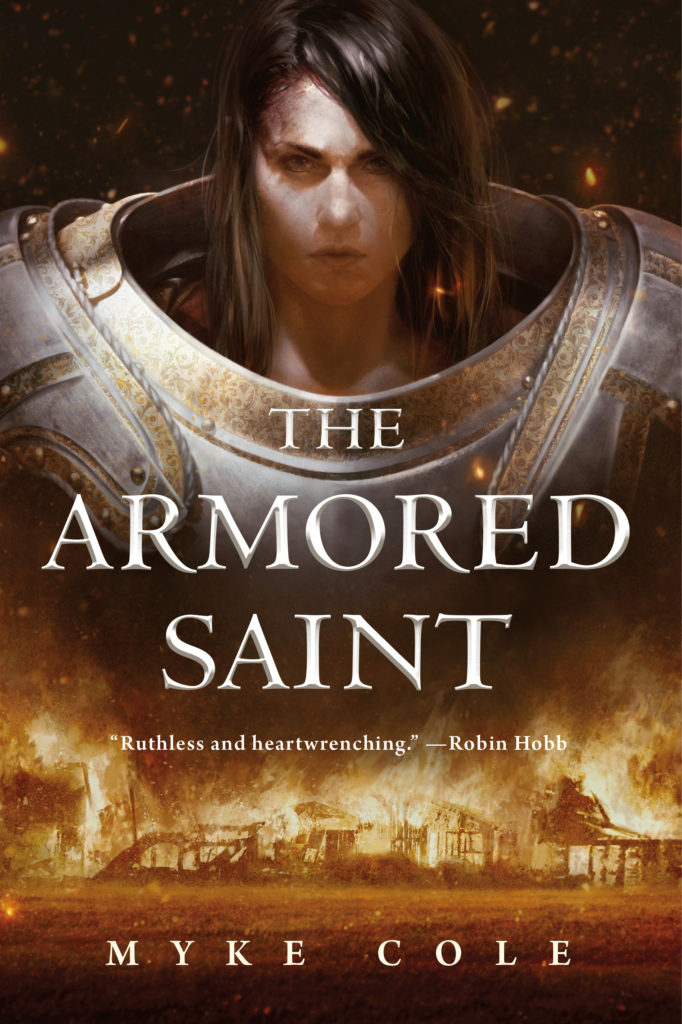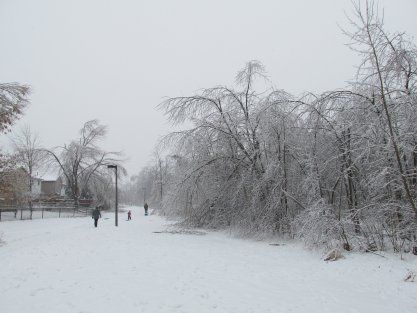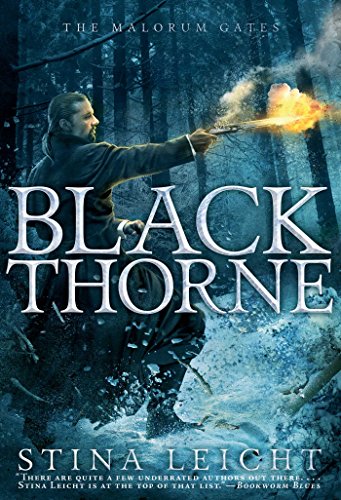346. Myke Cole (a.k.a. Sergeant Tibbs): The Armored Saint

https://media.blubrry.com/skiffyandfanty/dts.podtrac.com/redirect.mp3/archive.org/download/SandFEpisode346MykeColeTheArmoredSaint/Sandf–Episode346–MykeColeTheArmoredSaint.mp3Podcast: Play in new window | DownloadMecha, the Nascent Church, and invented fears, oh my! Myke Cole, one of our most frequent guests over the years, joins Paul and Shaun to talk about his new fantasy novel, The Armored Saint. Over the course of the interview, Myke discusses what it meant to him to write and publish this book that allowed him, as a military SFF writer, to prove that he’s a “Writer” with a capital “W”, the challenge of writing in a voice that is the exact opposite of his own, and some of the influences on his Mecha. Bonus: We all learn how to properly pronounce Heloise. We hope you enjoy the episode!
Month of Joy: Falling Snow and Rising Spirits by Phoebe Barton

Every December, a holiday-themed zone opens up in Star Trek Online: Q’s Winter Wonderland, a place where players can forget about spatial anomalies and chroniton fluxes and enjoy themselves in a place where no one ever dies, where the only enemies are made of snow and candy, and where it’s always winter. I found myself spending a lot of time there in 2017, even if I no longer have any real in-game reason to, and not just because it was 2017. I wondered why until it clicked — winter, a proper northern winter, is one of my sources of joy.
The Intersection: Blackthorne and the Importance of Secondary Characters

There are many tools one can use for worldbuilding. A lot of them aren’t obvious to the reader—and in fact, I’d venture to say that the most effective techniques are those the reader doesn’t notice. This is how real life works. For example: events and cultural distinctions clearly affecting the world and those living in it but no one openly discusses are a big factor in everyday life.[1] Another of these hidden opportunities for worldbuilding involves secondary characters. One of the things I aspire to do is to populate my stories with any number of interesting characters capable of taking over the narrative. (Not that I let them.) Not only does it give the main characters people to interact with and thus further the plot, it’s realistic. Each of us thinks of ourselves as the main character of our story. Point of view characters in a novel are no different. However, we aren’t the only main character. Every “secondary character” we meet—doctors, neighbors, people on the street—is the main character of their own story in which we are the secondary character. That’s reality. In addition, well-developed secondary characters will sometimes alter the main character’s perspective of the world. This, too, is how the real world works. How many times have you encountered someone whose perspective on a situation altered your own? If you’re like me, quite a few. None of us operates in a vacuum. Characters in a narrative shouldn’t either.
Book Review: The Fifth Season by N.K. Jemisin

“Let’s start with the end of the world, why don’t we? Get it over with and move on to more interesting things.” Beginning the book with an apocalypse as a cold open is just the first audacious and bold maneuver that writer N.K. Jemisin pulls off in The Fifth Season, the first of the Broken Earth series. The Fifth Season continues Jemisin’s technique of crafting interesting, diverse and unique fantasy worlds to explore ideas, concepts and characters in her burgeoning signature style. I listened to this in audiobook form, an excellent narration by Robin Miles. After that cold open, and a very brief immersion into the world, less than a page, the novel launches us into the stories of the characters. The novel focuses on three characters, and given that apocalypse, one quickly realizes that two of the characters’ stories predate that critical cold open event, and one, the character we meet first, is a survivor of the aftermath. The characters are all women, all in different stages of life.
Worldbuilding: Why It Ain’t So Easy
So, I appeared at an event at the San Marcos Library on Sunday where I’d been asked to give a talk about research. During the question and answer section, someone asked me why I would go to all the trouble of setting a fantasy in the real world? “Why do that when you can just make stuff up? That’s easier, after all. It’s a short cut!” Yeah. Um. Not so much. First, writing isn’t easy, nor is making up stuff. Worldbuilding is hard work — very difficult, detailed work. If you’re not thinking about the worldbuilding aspects of your story that much, then what you’re doing is probably derivative, and that’s not good. It’s far easier to work with environments with which the reader is already familiar than it is to make up a foreign world and make it plausible. There are certain cues

